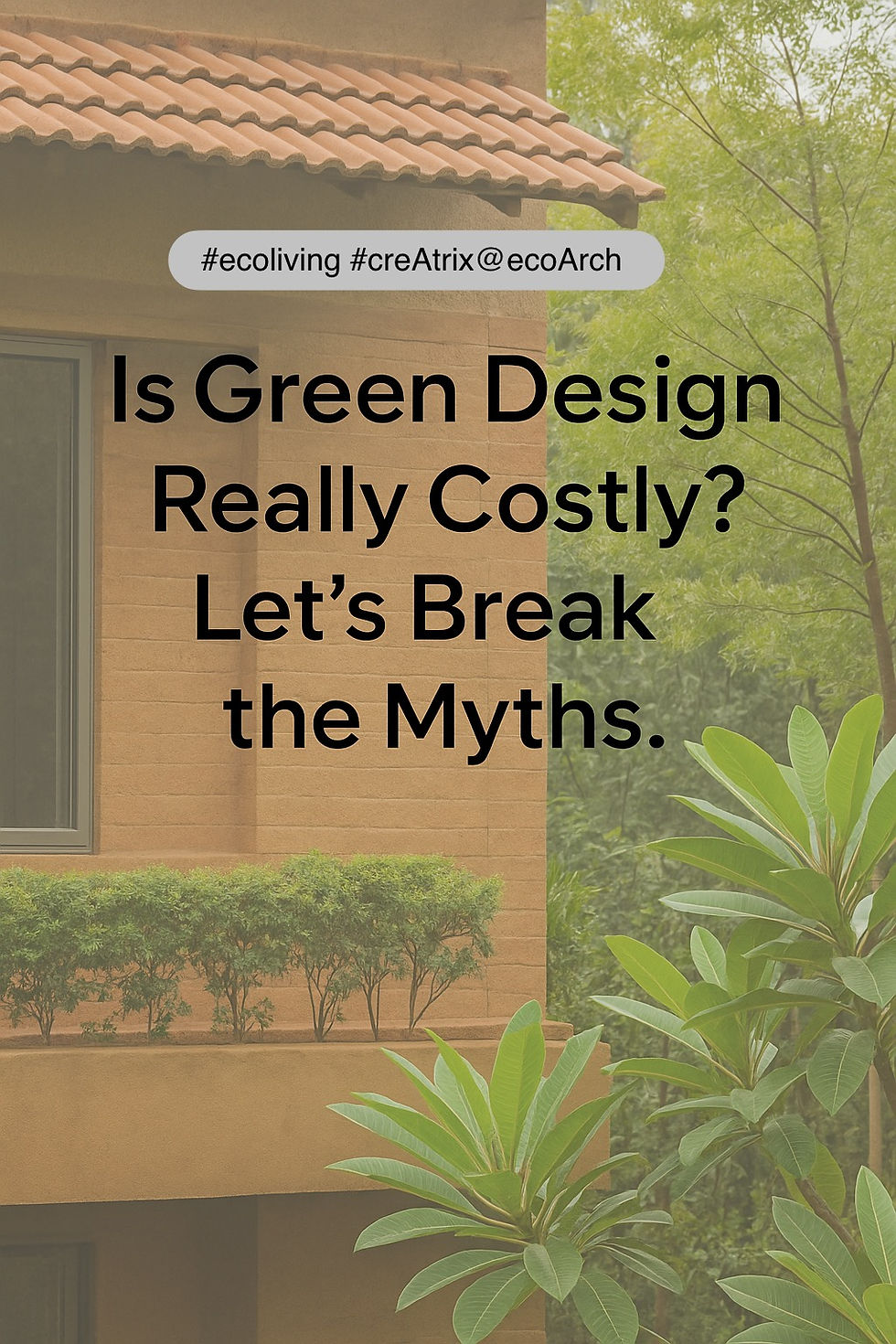Is Green Design Really Costly? Let’s Break the Myths
- Supriya B.S
- Jul 18, 2025
- 2 min read
Spoiler: It’s not. But let’s walk through the journey, shall we?
A few months ago, I met a young couple—Asha and Rohit—who had just bought a plot on the city’s outskirts. Surrounded by mango orchards and whispering winds, it was their dream to build a calm, soulful, and sustainable home.
But when we sat for our first design consultation, their excitement was mixed with concern.
“We want an eco-friendly home,” Asha said, “but we’ve heard it’s super expensive.”
This isn’t the first time I’ve heard this.
Let’s break this down with a few stories and facts—because green design isn’t a luxury. It’s a mindful investment that saves more than it spends in the long run.

Myth 1: “Eco-friendly homes cost more upfront.”
Truth: Not always—and often, not at all.
For Asha and Rohit, we used compressed stabilized earth blocks (CSEB) made on-site using local soil. This reduced material costs and transport by nearly 30%. We also oriented their home to maximize cross ventilation and daylight—cutting out the need for ACs and artificial lights during the day.
Their construction cost? On par with a conventional build.
Their utility bills? Way lower.
Myth 2: “Sustainable materials are exotic and imported.”
Truth: Sustainability starts with what’s local.
One of our resort clients assumed “green design” meant fancy solar panels and imported wood. But we reimagined it:
Mangalore tiles for passive cooling
Lime plaster for breathable walls
Handcrafted bamboo furniture from local artisans
Their space now feels earthy, rooted, and soulfully Indian—not factory-made.
Myth 3: “Green technology is expensive to maintain.”
Truth: Thoughtful systems = Low maintenance.
A client once hesitated to install a greywater recycling system thinking it would be complex. After installation, they told me:
“It’s the easiest system we’ve added—and our garden flourishes!”
Solar panels, rainwater harvesting, composting pits—when integrated right, these don’t need daily maintenance. They’re helpers, not hassles.
Myth 4: “Sustainable design is only for new buildings.”
Truth: Even old homes can go green.
One of our favorite transformation stories was a 20-year-old bungalow we retrofitted with natural limewash, a small solar array, and compost bins. The change in energy bills—and energy in the home—was undeniable.
Sometimes, all it takes is intention + small steps.
So… is green design costly?
Only if you confuse luxury with sustainability.
What it really costs is:
🕊️ A mindset shift
🛠️ Thoughtful planning
🌿 A love for long-term impact over short-term trends
And what it returns is priceless:
✨ Healthier living
✨ Lower utility bills
✨ A home that breathes with the Earth
Thinking of going green with your space?
Let’s chat. Every home has its own path to sustainability—let’s find yours.
👉 [Get in touch / Book a discovery call]



Comments